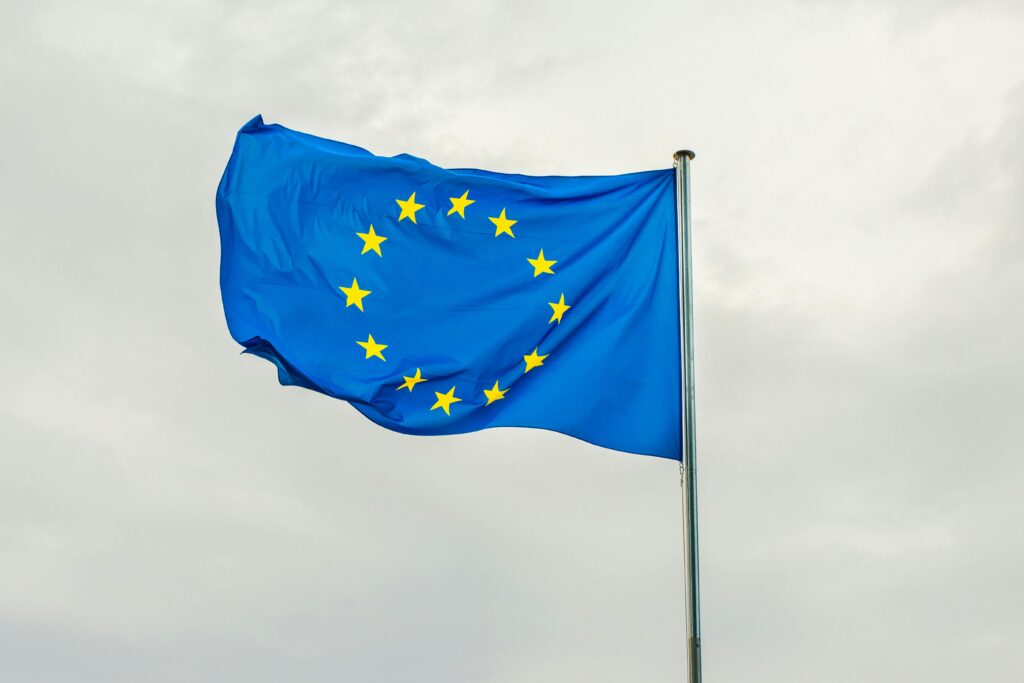In the heart of Europe, a digital revolution unfolds, transforming the landscape of business, economy, and society at large. The European Union, a beacon of economic integration and regulatory foresight, is at the forefront of this transformation. The digital transformation in the EU, characterized by the shift towards digital technologies and digital marketplaces, is reshaping how businesses operate, innovate, and compete on a global scale. Central to this transformation is the EU’s ambitious Digital Single Market policy, aimed at removing digital barriers and fostering a seamless online environment for all. This article delves into how EU businesses are adapting to digital transformation, the burgeoning role of digital marketplaces, and the overarching impact of the EU’s digital policies, while also considering the challenges and opportunities posed by data protection regulations like the GDPR.

The EU Business Landscape in the Digital Age
European businesses are increasingly embracing digital technologies to enhance their operations, reach new markets, and innovate their product offerings. From small startups to large corporations, the digital transformation is seen as a critical driver of growth, efficiency, and competitiveness. Advanced technologies such as artificial intelligence, blockchain, and the Internet of Things (IoT) are at the forefront of this transformation, enabling businesses to optimize their processes, engage with customers in novel ways, and create new value propositions.
The Rise of Digital Marketplaces
Digital marketplaces, platforms where goods and services are exchanged via digital interfaces, are playing a pivotal role in the EU’s digital economy. These platforms not only facilitate the direct interaction between buyers and sellers but also serve as incubators for digital innovation and entrepreneurship. The EU’s policy framework has been instrumental in nurturing an environment where digital marketplaces can thrive, promoting fair competition and protecting consumer rights in the digital realm.
The Impact of the EU’s Digital Single Market Policy
The EU’s Digital Single Market policy is a cornerstone of its digital transformation strategy. By aiming to remove digital barriers and foster a single market for digital goods, services, and content, the policy seeks to enhance the connectivity, competitiveness, and innovation capacity of the EU’s digital economy. This has opened up new opportunities for businesses to scale up across borders without the hindrance of regulatory discrepancies, thus driving economic growth and creating jobs in the digital sector.
Navigating Data Protection: GDPR and Beyond
The General Data Protection Regulation (GDPR) represents a significant challenge and opportunity within the EU’s digital transformation journey. As one of the most stringent data protection regulations globally, the GDPR has set a new benchmark for privacy and data protection, impacting how businesses collect, store, and process personal data. While compliance requires significant effort and resources, particularly for small and medium-sized enterprises (SMEs), it also offers a unique opportunity to build trust with consumers and differentiate in a crowded digital marketplace by championing data privacy and security.
Challenges and Opportunities Ahead
Despite the progress, the path to a fully integrated Digital Single Market is fraught with challenges. Regulatory fragmentation, digital skill gaps, and the need for substantial investments in digital infrastructure are among the hurdles that need to be addressed. Moreover, the rapid pace of technological change and the growing importance of data as a strategic asset necessitate ongoing vigilance and adaptation of regulatory frameworks.
Conversely, the digital transformation presents unparalleled opportunities for innovation, growth, and societal benefits. By harnessing digital technologies, businesses can drive sustainable development, create more inclusive and flexible work environments, and contribute to solving pressing global challenges.
Embracing the Digital Future
The digital transformation in the EU and the evolution of its digital market are indicative of a broader global shift towards a digital-centric economy and society. As EU businesses continue to navigate this transformation, the role of policies like the Digital Single Market and regulations such as the GDPR will be critical in shaping a resilient, competitive, and inclusive digital future. Embracing the opportunities while mitigating the challenges of the digital age requires a collaborative effort among governments, businesses, and citizens alike. In doing so, Europe can continue to lead by example, demonstrating how digital transformation can be harnessed for the greater good.

